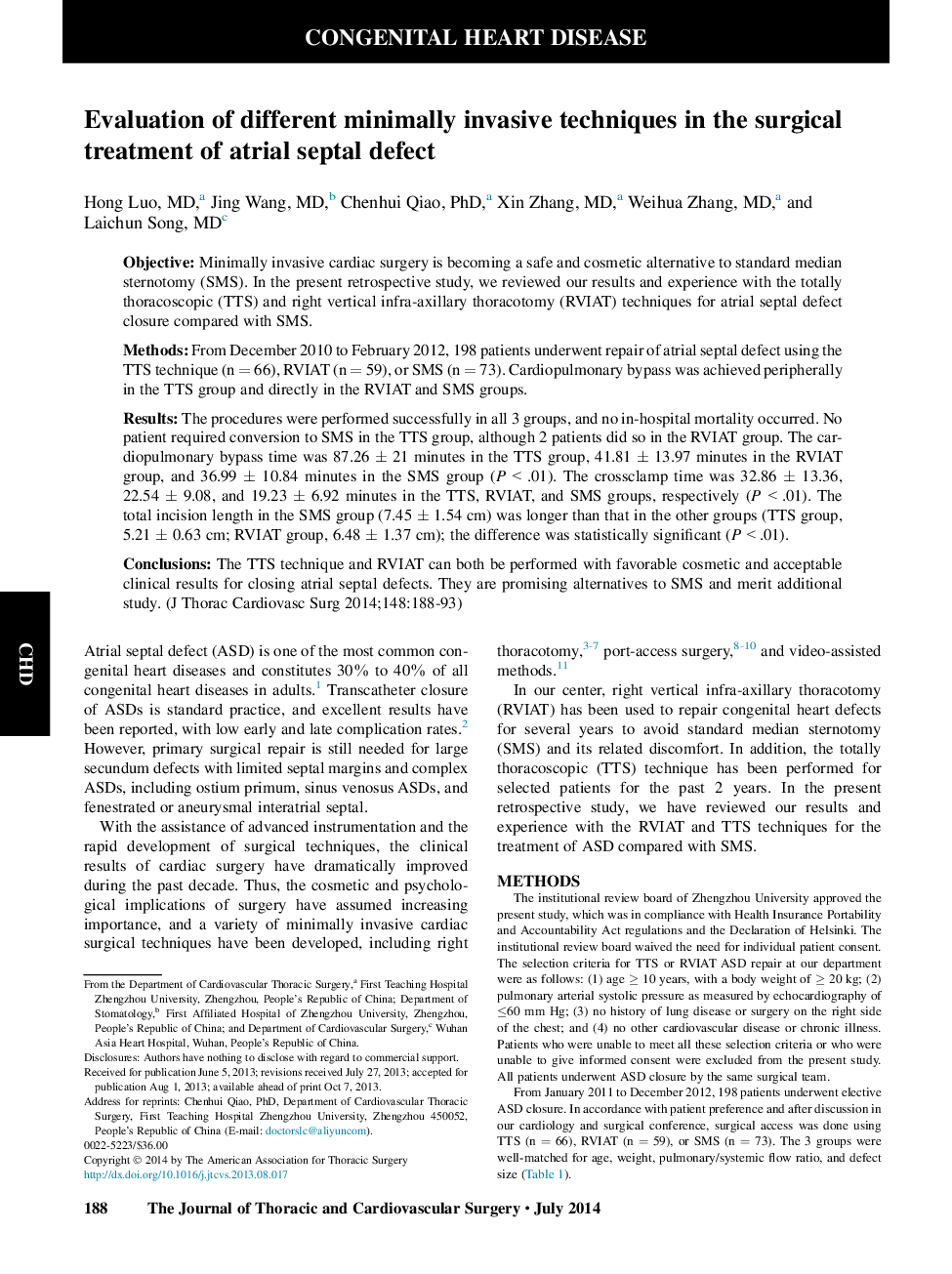| Article ID | Journal | Published Year | Pages | File Type |
|---|---|---|---|---|
| 2980764 | The Journal of Thoracic and Cardiovascular Surgery | 2014 | 6 Pages |
ObjectiveMinimally invasive cardiac surgery is becoming a safe and cosmetic alternative to standard median sternotomy (SMS). In the present retrospective study, we reviewed our results and experience with the totally thoracoscopic (TTS) and right vertical infra-axillary thoracotomy (RVIAT) techniques for atrial septal defect closure compared with SMS.MethodsFrom December 2010 to February 2012, 198 patients underwent repair of atrial septal defect using the TTS technique (n = 66), RVIAT (n = 59), or SMS (n = 73). Cardiopulmonary bypass was achieved peripherally in the TTS group and directly in the RVIAT and SMS groups.ResultsThe procedures were performed successfully in all 3 groups, and no in-hospital mortality occurred. No patient required conversion to SMS in the TTS group, although 2 patients did so in the RVIAT group. The cardiopulmonary bypass time was 87.26 ± 21 minutes in the TTS group, 41.81 ± 13.97 minutes in the RVIAT group, and 36.99 ± 10.84 minutes in the SMS group (P < .01). The crossclamp time was 32.86 ± 13.36, 22.54 ± 9.08, and 19.23 ± 6.92 minutes in the TTS, RVIAT, and SMS groups, respectively (P < .01). The total incision length in the SMS group (7.45 ± 1.54 cm) was longer than that in the other groups (TTS group, 5.21 ± 0.63 cm; RVIAT group, 6.48 ± 1.37 cm); the difference was statistically significant (P < .01).ConclusionsThe TTS technique and RVIAT can both be performed with favorable cosmetic and acceptable clinical results for closing atrial septal defects. They are promising alternatives to SMS and merit additional study.
